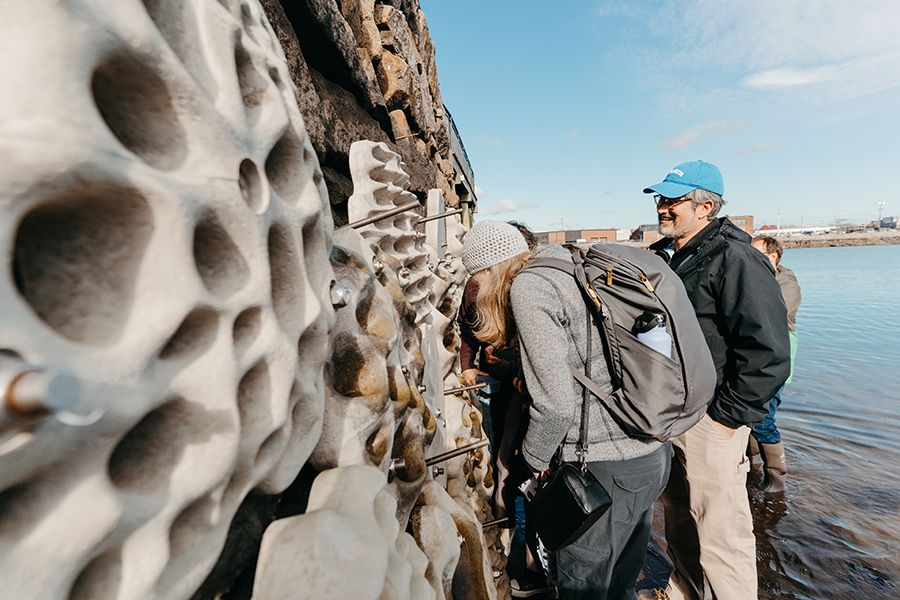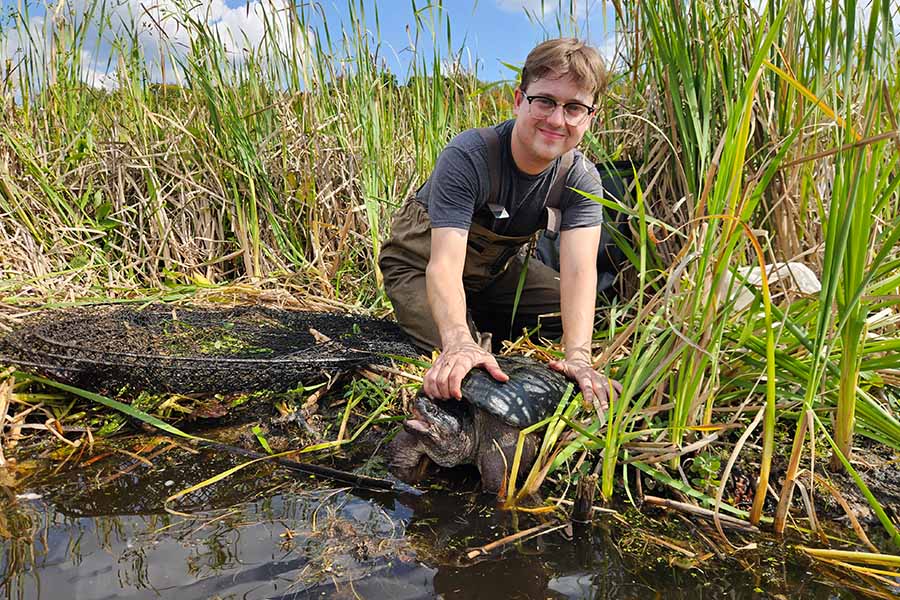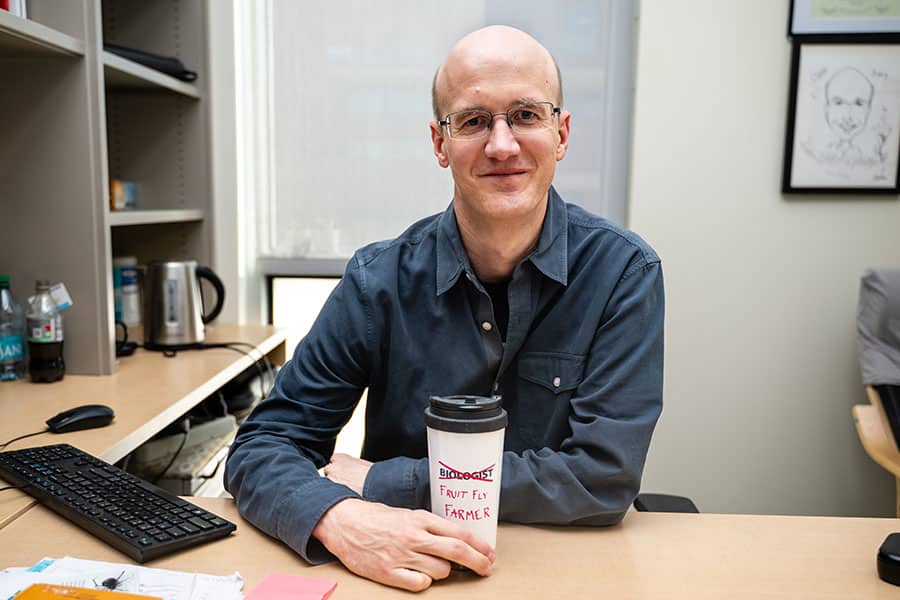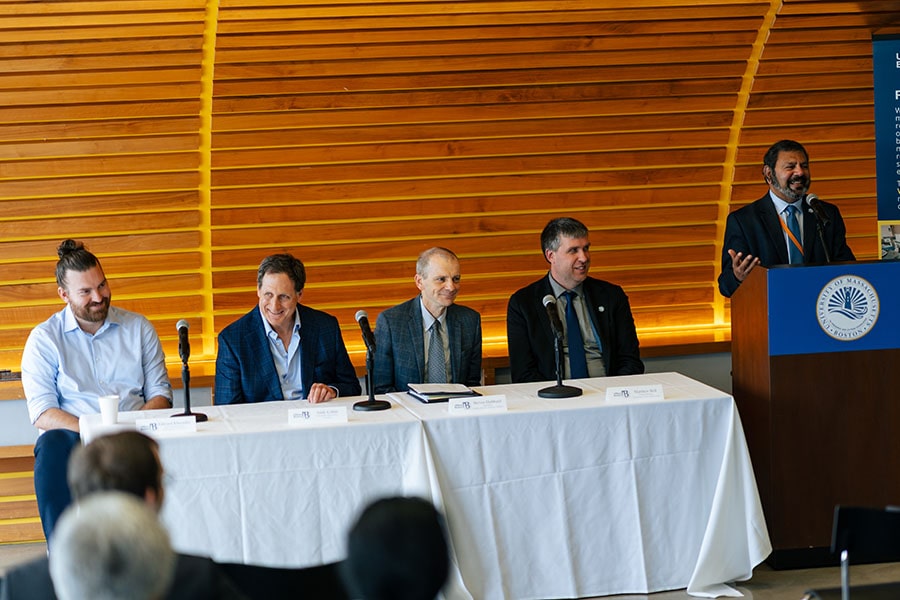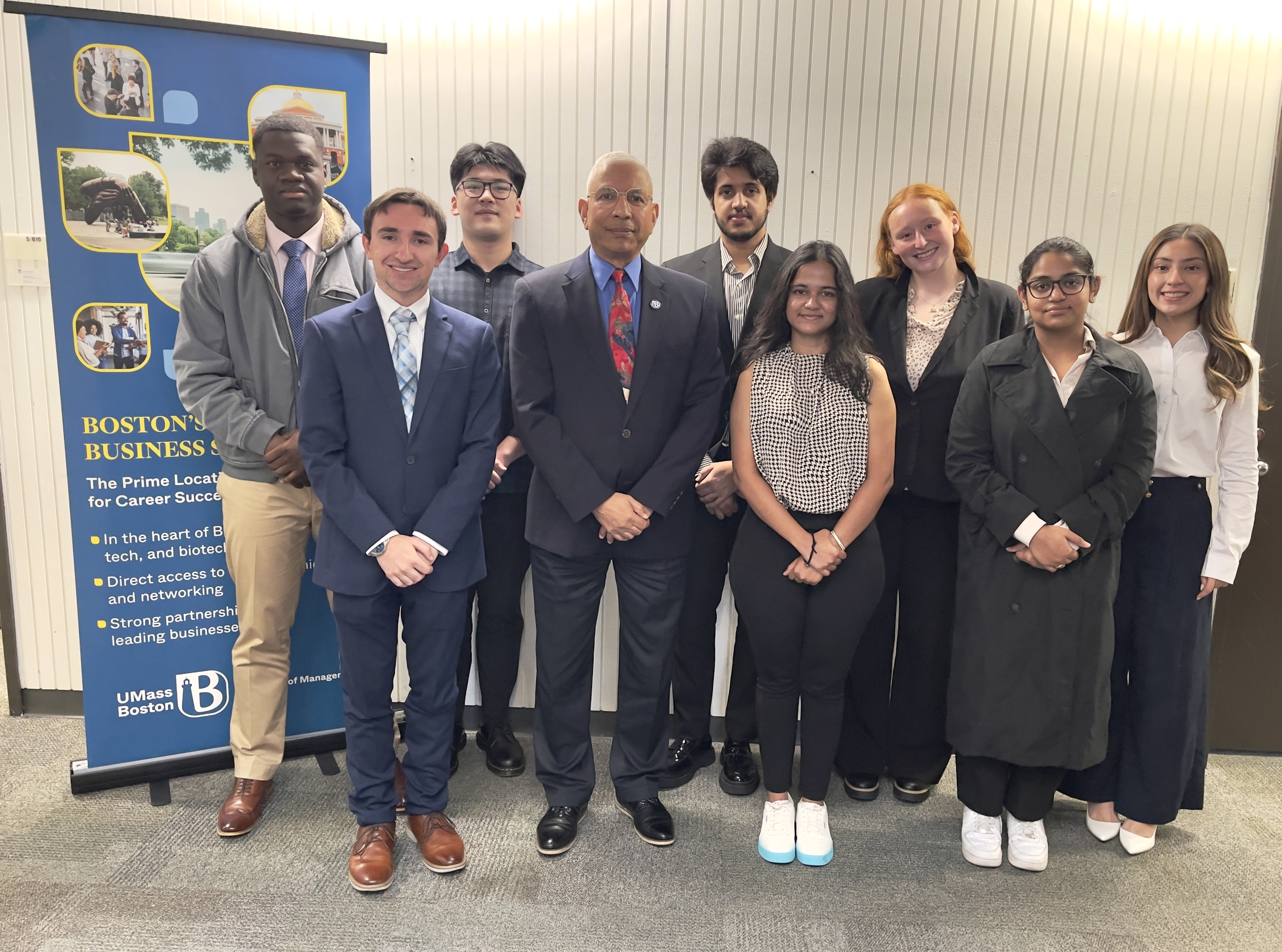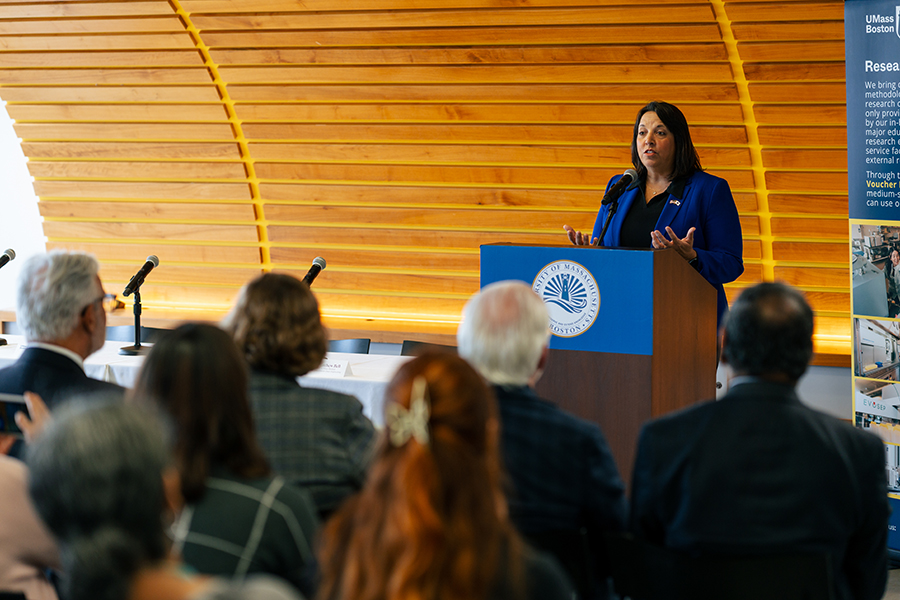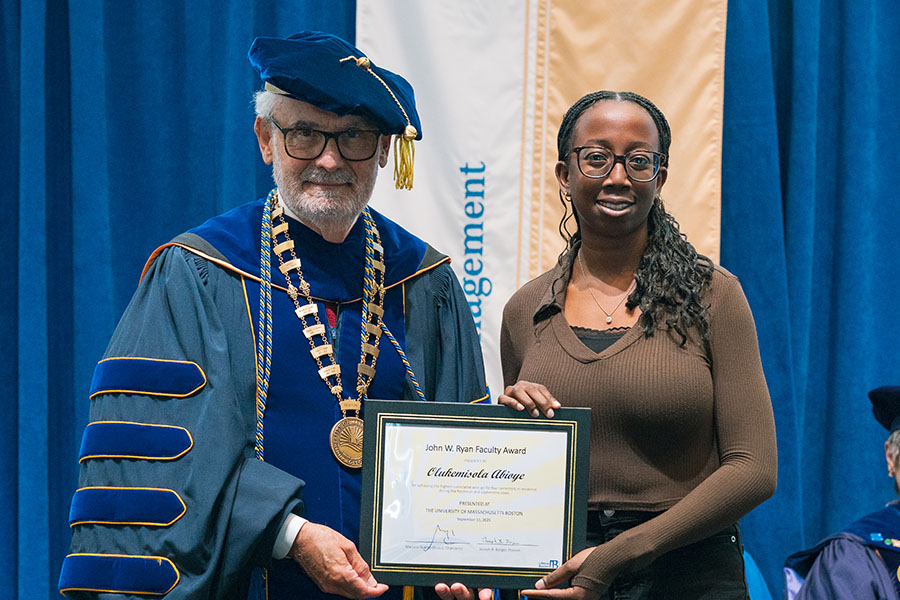Stone Living Lab Launches Crucial New Nature-Based Research Through Landmark $10 Million Stone Foundation Gift
Researchers and partners at the Stone Living Lab will launch and expand five vital nature-based research projects this year, thanks in part to a groundbreaking new $10 million donation from The James M. and Cathleen D. Stone Foundation that was announced this week.
Under this significant new investment at a critical time in climate research, the Stone Living Lab – which is led by the UMass Boston School for the Environment and Boston Harbor Now – will expand research into Boston Harbor’s Living Seawalls; establish boulder fields off the coast of Massachusetts; explore approaches to compound coastal and inland flooding; enhance their climate change observatory; and launch a competition to identify new nature-based adaptation (NbA) innovations. These initiatives, along with the Lab’s educational programs and policy innovation work, will continue to develop strategies to help address the climate crisis in Massachusetts and globally.
“The Stone Foundation is honored to continue our support of the Stone Living Lab and their groundbreaking work in partnership with UMass Boston,” said Cathleen D. Stone, President of The Stone Foundation. “We look forward to building on the successes this partnership has brought to the climate resilience field.”
Thanks to the Stone Foundation's generous support for the Stone Living Lab, we now have an exciting opportunity to continue expanding, exploring, implementing, and sharing climate solutions with communities here and around the world,” said UMass Boston Chancellor Marcelo Suárez-Orozco. “UMass Boston is proud to deepen this effort and, as an internationally recognized leader in climate resilience work, we remain dedicated to helping our students at the Stone Living Lab develop a toolbox of innovative, evidence-based, and nature-inspired resilience solutions for Boston and beyond.”
“The innovations that will continue to come out of the Stone Living Lab would not be possible without support from the Stone Foundation and our many partners,” said Katherine Dafforn, UMass Boston’s Director of Stone Living Lab and Distinguished Professor in the School for the Environment. “We are pleased to be able to continue attracting and developing great innovators in our lab who see the value in partnering with communities to co-design projects that benefit them and the environment for decades to come.”
Through this gift - and additional support from UMass Boston, the Commonwealth of Massachusetts, and other funders - the Stone Living Lab will continue its commitment to test, scale, and disseminate nature-based approaches for climate adaptation locally and globally. With the threat of rising sea levels in the world’s urban harbors, including Boston, the research conducted by Stone Living Lab aims to mitigate what will be devastating consequences without intervention. These investments will provide Stone Living Lab the ability to continue as an innovation center for NbA, generating data, partnerships, and prototypes needed to accelerate implementation.
“The partnership between UMass Boston and Stone Living Lab continues to discover and implement new and essential strategies for combatting extreme weather and climate change,” said Marty Meehan, President of the University of Massachusetts. “We are deeply grateful to the Stone Foundation for their significant support and dedication to climate resilience. We look forward to the discoveries that the Stone Living Lab will continue to unlock for the benefit of all of us in Massachusetts.”
“Nature is our best defense to climate change,” said Melissa Hoffer, Governor Healey’s Climate Chief. “UMass Boston’s Stone Living Lab plays a vital role in developing and demonstrating the efficacy of coastal nature-based solutions. Their research is showing the world that these innovative solutions work—keeping communities, infrastructure, and ecosystems safer, and saving millions in avoided costs.”
The Stone Living Lab is an innovative and collaborative initiative for testing and scaling up nature-based approaches to climate adaptation, coastal resilience, and ecological restoration in the high-energy environment of Boston Harbor. A “living lab” brings research out of the traditional laboratory and into the real world by creating a user-centered, open, innovative ecosystem that engages scientists and the community in collaborative design and exploration.
The Lab is a partnership between the UMass Boston School for the Environment, Boston Harbor Now, the National Park Service, the Massachusetts Department of Conservation and Recreation, the Massachusetts Executive Office of Energy and Environmental Affairs, and the City of Boston, in collaboration with members of the Massachusett Tribe at Ponkapoag. The Lab’s program areas are research & monitoring, education & engagement, policy innovation, and climate preparedness.
“The future of our Harborwalk and waterfront depends on the types of creative and innovative approaches that the Stone Living Lab is focused on,” said Boston Harbor Now President and CEO Kathy Abbott. “Boston Harbor Now is proud to collaboratively lead the Stone Living Lab with UMass Boston and all of our partners, and we are excited about the opportunities that this funding creates.”
“We are thrilled that students from the School for the Environment at UMass Boston continue to bring real world solutions to emerging climate change issues in communities across the New England area," said Carol Thornber, dean of UMass Boston’s School for the Environment. “We are grateful to our close partners at Boston Harbor Now for their continued dedicated efforts to make Boston one of the world’s truly great coastal cities. And now with the Stone Foundation’s new contribution, we can reaffirm our collective goal to making Boston a leader in climate change resilience.”
The gift will be distributed over a five-year span as the Stone Living Lab continues to partner with communities to create long-term solutions to their climate change challenges. More information about the projects and the Lab’s ongoing research can be found at stonelivinglab.org.
About James M. and Cathleen D. Stone Foundation
The mission of the James M. and Cathleen D. Stone Foundation is to promote a more knowledgeable and inclusive society, with an emphasis on education, science, environmental sustainability and the mitigation of economic inequality.
About the Stone Living Lab
The Stone Living Lab is an innovative and collaborative initiative for testing and scaling up nature-based approaches to climate adaptation, coastal resilience, and ecological restoration in the high-energy environment of Boston Harbor. A “living lab” brings research out of the traditional laboratory and into the real world by creating a user-centered, open, innovative ecosystem that engages scientists and the community in collaborative design and exploration. The Lab is a partnership between the University of Massachusetts Boston School for the Environment, Boston Harbor Now, the National Park Service, the Massachusetts Department of Conservation and Recreation, the Massachusetts Executive Office of Energy and Environmental Affairs, and the City of Boston, in collaboration with members of the Massachusett Tribe at Ponkapoag. The Lab’s program areas are research & monitoring, education & engagement, policy innovation, and climate preparedness.
About UMass Boston
UMass Boston is deeply rooted in the city's history yet poised to address future challenges. Recognized for innovative research, this metropolitan Boston public university offers its diverse student population an intimate learning environment and the rich experience of a great American city. UMass Boston’s colleges and graduate schools serve more than 15,000 students while engaging local and global constituents through academic programs, research centers, and public service. To learn more, visit www.umb.edu.
About Boston Harbor Now
Boston Harbor Now (BHN) envisions a vibrant, welcoming, and resilient Boston Harbor, Waterfront, and Islands for the benefit of everyone. Our mission is to ensure that these unique regional resources are accessible, inclusive, and properly adapted to the risks of climate change. BHN focuses on Coastal Resilience, Access, and Equity. We work with public and private partners to increase people’s awareness of and access to parks and public spaces on Boston Harbor through programming, communications, and engagement. The organization serves as the legislated non-profit partner of the Boston Harbor Islands National and State Park and the City's partner for the Boston Harborwalk and Moakley Park. For more information about Boston Harbor Now, please visit www.bostonharbornow.org.
Latest University News
- Biology Team to Survey Reptiles and Amphibians in National Parks with $190K NPS Cooperative AgreementProfessors of Biology Rob Stevenson and Doug Woodhams, from the College of Science and Mathematics, have received a two-year award for $190,000 from the Department of the Interior’s National Park Service to develop a comprehensive survey of reptiles and amphibians in participating parks.
- In Fruit Fly Eyes, UMass Boston Researcher Sees Potential Medical DiscoveriesJens Rister, an associate professor in UMass Boston’s biology department, has just been awarded more than $1,700,000 in funding from the National Eye Institute of the NIH to research a protein that guides the development of color vision in fruit flies. By learning more about the underlying mechanisms, Rister hopes to learn about human diseases such as Oculoauricular Syndrome, a genetic condition that affects eyes and ears.
- Quantum Experts Discuss Impact of Investment on Students, Science and BusinessesFollowing the announcement that UMass Boston will be receiving a $3.8M grant to develop and commercialize quantum hardware, expert panelists discussed the positive impact that investment in quantum research can have.
- College of Management Welcomes a Global Cohort of Dean’s Student AmbassadorsThe College of Management at the UMass Boston is proud to announce its newest cohort of Dean’s Student Ambassadors–an extraordinary group of undergraduate leaders who will represent the College throughout the 2025-2026 academic year.
- UMass Boston Secures $3.8M for Collaborative Expanding Quantum Hardware Development, CommercializationMassTech Builds on its Support of UMass Boston, Western New England University-led Initiative
- Olukemisola “Kemi” Abioye has been recognized as the 2025 Ryan Award winner after achieving the highest cumulative GPA over four semestersAfter years of hard work and learning to balance extracurriculars with jobs, internships, and school, Kemi Abioye received the 2025 Ryan Award at UMass Boston.



